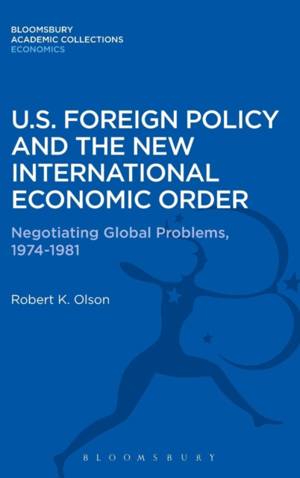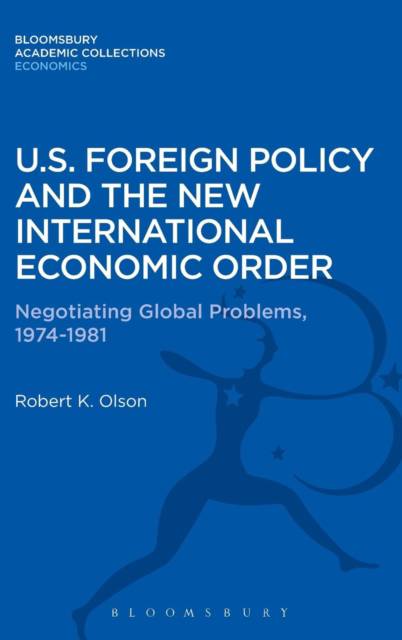
- Afhalen na 1 uur in een winkel met voorraad
- Gratis thuislevering in België vanaf € 30
- Ruim aanbod met 7 miljoen producten
- Afhalen na 1 uur in een winkel met voorraad
- Gratis thuislevering in België vanaf € 30
- Ruim aanbod met 7 miljoen producten
Zoeken
U.S. Foreign Policy and the New International Economic Order
Negotiating Global Problems, 1974-1981
Robert K Olson
€ 322,45
+ 644 punten
Uitvoering
Omschrijving
U.S. Foreign Policy and the New International Economic Order is an authoritative account of the development of U.S. policy toward the New International Economic Order (NIEO) from its inception in 1974 through the Eleventh Special Session of the General Assembly in August-September 1980. Olson concentrates on the latter stages of the North-South dialogue, analyzing U.S. policy in the context of broad foreign policy objectives pursued since the end of World War II and also in light of the events of the seventies and the 1980 Soviet invasion of Afghanistan. On the premise that policy is, ultimately, what happens at the negotiating table, he also specifically examines the record of U.S. negotiations on the Common Fund, UNCTAD V, and other major North-South meetings during 1979-1980. This material, together with an examination of how policy is made within the U.S. bureaucracy, who makes it, and why, provides fresh insight into a complex process.
Olson seeks to determine if and to what extent U.S. policy serves basic U.S. interests and whether the negotiating process has been an effective medium for global problem solving. He concludes that althought U.S. policy and practice do serve traditional U.S. foreign policy interests, the political cost is high. He also concludes that NIEO negotiations have not been an effective means for global problem solving and that rapid change in political and economic realities has rendered obsolete the basic concepts - the very mechanisms for problem solving - on both sides.
Olson seeks to determine if and to what extent U.S. policy serves basic U.S. interests and whether the negotiating process has been an effective medium for global problem solving. He concludes that althought U.S. policy and practice do serve traditional U.S. foreign policy interests, the political cost is high. He also concludes that NIEO negotiations have not been an effective means for global problem solving and that rapid change in political and economic realities has rendered obsolete the basic concepts - the very mechanisms for problem solving - on both sides.
Specificaties
Betrokkenen
- Auteur(s):
- Uitgeverij:
Inhoud
- Aantal bladzijden:
- 176
- Taal:
- Engels
- Reeks:
Eigenschappen
- Productcode (EAN):
- 9781472511591
- Verschijningsdatum:
- 9/01/2014
- Uitvoering:
- Hardcover
- Formaat:
- Genaaid
- Afmetingen:
- 156 mm x 234 mm
- Gewicht:
- 449 g

Alleen bij Standaard Boekhandel
+ 644 punten op je klantenkaart van Standaard Boekhandel
Beoordelingen
We publiceren alleen reviews die voldoen aan de voorwaarden voor reviews. Bekijk onze voorwaarden voor reviews.







